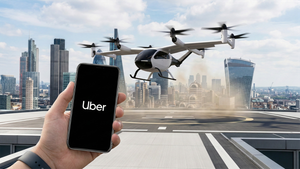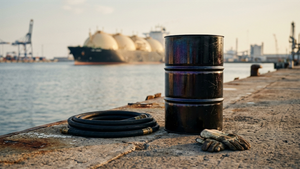Companies like TUI Musement, GetYourGuide, Trip.com, AttractionTickets.com and Jet2holidays are STILL, exploiting wildlife for profit despite 84%1 of UK citizens who believe that tour operators should not sell activities that cause wild animals suffering, according to a report by World Animal Protection.
Elephant riding, selfies with tiger cubs and swimming with dolphins were some of the cruel wildlife activities on offer by these travel brands, according to the Real Responsible Traveller report. The study reviewed 9 leading travel companies on their commitment to animal welfare and wildlife friendly tourism with the aim to help holiday makers plan a wildlife friendly holiday.
Thousands of wild animals every year are forced to perform for tourist entertainment or be subjects for tourist “experiences” that are incredibly unnatural and stressful for them. For example, elephants in entertainment are captured in the wild or born into captivity and taken from their mothers at an early age. They are then subjected to violent training regimes causing huge physical and psychological harm.
Dolphins used for entertainment are mostly bred in captivity, (although some are still captured from the wild) and kept in barren tanks a tiny fraction of their natural home range which creates huge distress for these wonderful animals.
Travelling responsibly means never including captive wildlife entertainment or experiences on your itinerary and refusing to book your holiday with travel companies which may claim to offer responsible, sustainable travel, while continuing to profit from wild animal exploitation. The report also shows the travel companies who have made significant, positive steps for wildlife over recent years including Airbnb, and Booking.com. Expedia has improved in some areas, having stopped selling captive dolphin entertainment in 2021.
Katheryn Wise, World Animal Protection, Wildlife Campaign Manager, said: “Holiday makers have made it clear; they don’t want tour operators selling animal suffering, but the reality is, suffering is still being sold under the guise of entertainment. Who you book your holiday with matters. TUI Musement, Jet2holidays, GetYourGuide Trip.com and Attraction Tickets.com are STILL exploiting captive wild animals.
“World Animal Protection is urging responsible travellers to join us in challenging these companies to do better for animals. Real responsible travellers have the power to act and create lasting change for wild animals by refusing to support companies that still treat wild animals as commodities who they can exploit for profit.
“For more information on how you can make a difference visit our Real Responsible Travel Page at www.worldanimalprotection.org.uk/real-responsible-traveller.
“We are also urging the UK government to take action by passing the Animals (Low Welfare Activities Abroad) Bill, which sees its second parliamentary reading take place on February 3rd. This important bill intends to stop the sale and advertising of activities abroad which involve low standards of welfare for animals.”
The Real Responsible Traveller report builds on World Animal Protection’s 2020 Tracking the Travel Industry report, which assessed Airbnb, AttractionTickets.com, Booking.com, DER Touristik, Expedia, Flight Centre, GetYourGuide, Klook, The Travel Corporation, Viator, Trip.com and TUI Musement.
World Animal Protection commissioned the University of Surrey who independently analysed the public commitments travel companies have, and haven’t, made.
Companies were scored across four key areas:
1. Commitment: Availability and quality of published animal welfare policies and how applicable they are to all their brands
2. Targets and performance: Availability and scope of published time bound targets and reports on progress towards meeting animal welfare commitments
3. Changing industry supply: Availability and quality of engagement with suppliers and the overall industry, to implement wildlife-friendly changes
4. Changing consumer demand: Availability and quality of educational animal welfare content and tools to empower consumers to make wildlife-friendly travel choices
World Animal Protection then checked to see if they offered any of the five “animal attractions”:
- Elephant rides, feeding and washing
- Feeding or petting primates
- Selfies, shows, petting or walking with big cats
- Swimming with captive dolphins and dolphin shows
- The sale of any interactive “experiences” involving any captive wild animals (including for example sea lions, crocodiles and alligators)
For more information about industry best practices and how holidaymakers can make their concerns known to the travel companies click here - https://www.worldanimalprotection.org.uk/real-responsible-traveller.
References
- World Animal Protection commissioned Savanta in 2022 to complete a global online survey of 23,726 people across 15 countries (Denmark, Germany, Netherlands, Sweden, the UK, Spain, South Africa, Kenya, China, India, Thailand, Canada, the USA, Australia, and Brazil) on their attitudes to wildlife used in the tourist industry
Notes to editors:
Images can be downloaded here - https://animalprotection.sharepoint.com/:f:/s/ukcommsteam/EvhKLucprFtAhvRnhuqN5AIBAqkwEv8HGqU7NflHd9P88g?e=3BeDeW
- World Animal Protection scrutinised travel companies by their international reach and by country/region operations, as follows:
- International: GetYourGuide, Klook, Trip.com, Traveloka, TUI Musement
- UK: TUI Musement, GetYourGuide, Trip.com, AttractionTickets.com, Jet2holidays, Expedia, Airbnb, Booking.com, Tripadvisor
- Denmark and Sweden: GetYourGuide, Trip.com, TUI Musement
- India: Traveloka, Trip.com, TUI Musement, Yatra, MakeMyTrip, Club Mahindra
- Brazil: GetYourGuide, CVC, Decolar
- Canada: GetYourGuide, Trip.com, Groupon
- US: Groupon
Information on travel companies according to website searches in September 2022.
Scoring by University of Surrey took place in June 2022.
- World Animal Protection has been moving the travel industry to stop sales of wildlife entertainment for more than a decade. First focusing on stopping offers for elephant rides and shows, and having successfully moved Tripadvisor and other major brands, we expanded our focus to include captive dolphins in 2019, and have since moved Expedia, Virgin Holidays, Booking.com and others to drop captive dolphin and/or elephant sales and become “wildlife friendly”.
- We encourage travel companies to have full information about their supply chains including animal experiences so they can become true leaders for animals. Our intention is to help travel companies grow their ethical sustainability credentials, by identifying and implementing solutions that ensure good welfare and protection of the animals involved.
World Animal Protection
World Animal Protection is the global voice for animal welfare, with more than 70 years’ experience campaigning for a world where animals live free from cruelty and suffering.
We have offices in 12 countries and work across 47 countries. We collaborate with local communities, the private sector, civil society and governments to change animals’ lives for the better.
Our goal is to change the way the world works to end animal cruelty and suffering for both wild and farmed animals. Through our global food system strategy, we will end factory farming and create a humane and sustainable food system, that puts animals first. By transforming the broken systems that fuel exploitation and commodification, we will give wild animals the right to a wild life. Our work to protect animals will play a vital role in solving the climate emergency, the public health crisis and the devastation of natural habitats.
Media Contact
Company Name: World Animal Protection
Contact Person: Emily Cunningham
Email: Send Email
Phone: 020 7239 0632
Country: United Kingdom
Website: https://www.worldanimalprotection.org.uk





